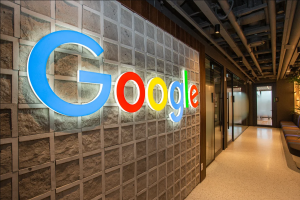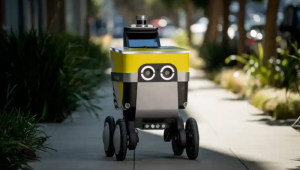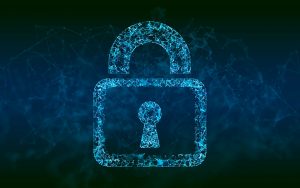Is Apple Abandoning All Plans of Going Green?
![]() Last month, Apple asked EPEAT – Electronic Product Environmental Assessment Tool, to remove 39 of their certified desktop computers, monitors and laptops, from the list of environment friendly products. According to some sources, Apple decided to remove the green certification from their products because it was such a daunting task to acquire the certification. But Robert Frisbee, CEO of EPEAT says Apple’s withdrawal was because “their design direction was no longer consistent with the EPEAT requirements.”
Last month, Apple asked EPEAT – Electronic Product Environmental Assessment Tool, to remove 39 of their certified desktop computers, monitors and laptops, from the list of environment friendly products. According to some sources, Apple decided to remove the green certification from their products because it was such a daunting task to acquire the certification. But Robert Frisbee, CEO of EPEAT says Apple’s withdrawal was because “their design direction was no longer consistent with the EPEAT requirements.”
One of the things being assessed by EPEAT is the ability to deconstruct and recycle products but according to iFixit CEO Kyle Wiens, Apple’s latest products are hard to disassemble or even recycle.
“The design may well be comprised of ‘highly recyclable aluminum and glass’ — but my friends in the electronics recycling industry tell me they have no way of recycling aluminum that has glass glued to it like Apple did with both this machine and the recent iPad. The design pattern has serious consequences not only for consumers and the environment, but also for the tech industry as a whole,” Wiens wrote in a blog entry.
Because of the EPEAT withdrawal, city officials of San Francisco are going to block the purchase of Apple products by all municipal agencies. City officials will be notifying all 50 of the city’s agencies that Apple laptops and desktops “will no longer qualify” for purchase with city funds.
“We are disappointed that Apple chose to withdraw from EPEAT,” said Melanie Nutter, director of San Francisco’s Department of Environment, “and we hope that the city saying it will not buy Apple products will make Apple reconsider its participation.”
Apple’s withdrawal from EPEAT doesn’t necessarily mean that their products are no longer green or environment friendly, but without the certification, people can’t help but think that Apple’s up to something or violating environmental codes.
It also doesn’t help that Apple’s data centers were once again given poor marks by Greenpeace.
From D to C
![]() Okay, so Apple improved, somehow, as it was able to get C marks, from their previous Ds, in a couple of Greenpeace categories like “Renewables and Advocacy” and “Energy Efficiency and Greenhouse Gas Mitigation.” They were able to raise their overall clean energy score to 22.6% from their previous 15.3% score.
Okay, so Apple improved, somehow, as it was able to get C marks, from their previous Ds, in a couple of Greenpeace categories like “Renewables and Advocacy” and “Energy Efficiency and Greenhouse Gas Mitigation.” They were able to raise their overall clean energy score to 22.6% from their previous 15.3% score.
“Apple has the potential to set a new bar with its coal-free iCloud commitment, but its plans to reach this goal are still mostly talk and not enough walk,” Gary Cook, Greenpeace International’s senior information technology analyst, said in a statement.
Apple is clearly exerting extra effort in turning their company green but environmentalists think that they can still do better. Their turning their data centers into coal-free facilities and new data centers in Oregon and Nevada “will be designed to meet that standard from Day 1.”
“We’re committed to building the world’s most environmentally responsible data centers and are leading the industry in the use of renewable energy, including the nation’s largest private solar arrays and nonutility fuel cell installation,” Kristin Huguet, an Apple spokeswoman, said.
Companies are given high marks by Greenpeace based on how their data centers are being powered and cooled down. Some use natural air to cool their data centers, some companies have placed their data centers in cold regions to deal with that problem, while Apple used energy from the sun, via solar panels, to cool off their data centers.
Though Apple withdrew from EPEAT, and it doesn’t really say much since anyone can join and leave EPEAT whenever they want, they’re not some big corporation who’s out to pollute and destroy the earth. Change is not that easy, and in Apple’s case, or any other company, change won’t be that fast.
Pass or Fail?
Apple isn’t the only one who got poor marks from Greenpeace. According to the latest report, “A Clean Energy Road Map for Apple,” Dell, IBM, Microsoft, and Oracle got D and C marks for “Renewables and Advocacy” and “Energy Efficiency and Greenhouse Gas Mitigation” categories, showing no improvement since April. Twitter and Amazon were probably the baddest of the bunch. Twitter got an F for Energy Efficiency and Greenhouse Gas Mitigation, F for Energy Tranparency, D for Infrastructure Siting, and a D for Renewables and Advocacy. Amazon got D,F,F, and D for the categories respectably. Google and Yahoo! were able to maintain their high marks in all categories.
A message from John Furrier, co-founder of SiliconANGLE:
Your vote of support is important to us and it helps us keep the content FREE.
One click below supports our mission to provide free, deep, and relevant content.
Join our community on YouTube
Join the community that includes more than 15,000 #CubeAlumni experts, including Amazon.com CEO Andy Jassy, Dell Technologies founder and CEO Michael Dell, Intel CEO Pat Gelsinger, and many more luminaries and experts.
THANK YOU













